People
Heart-warming Photo of Little Boy Giving Skin-to-Skin to One of His Premature Sibling Goes Viral
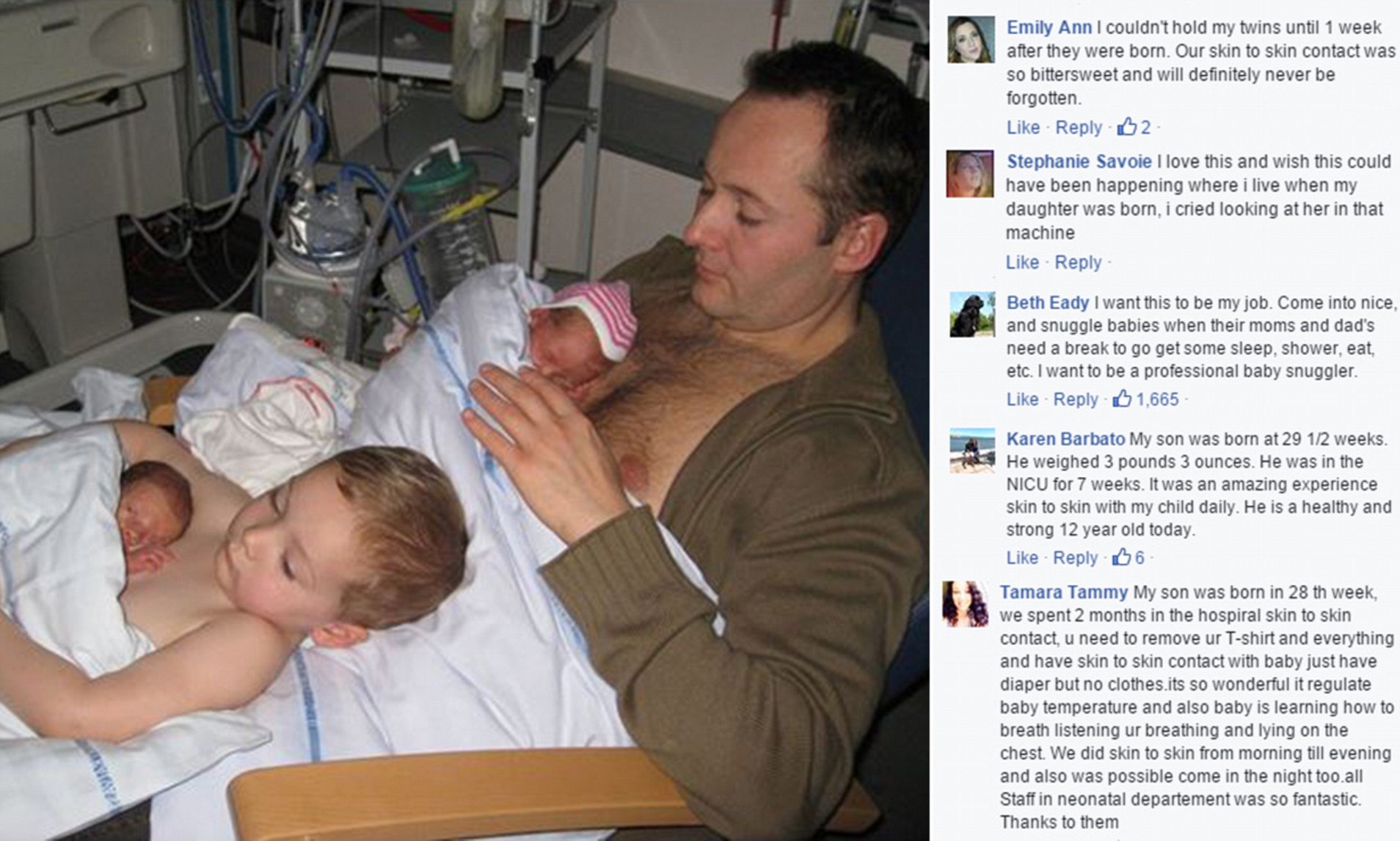
Skin-to-skin contact as an alternative to exclusive incubation is more widely advised for premature babies in the Scandinavian region of Europe than anywhere else in the globe. It is widely assumed that human contact helps fragile youngsters fare better and recover more quickly than total isolation in a machine.
With this sweet snapshot of a topless small boy helping his father deliver skin-to-skin to his premature twin siblings, our hearts are still in our hands. The viral photograph was taken in 2016 at Copenhagen’s Hvidovre Hospital. The NINO Birth Organization, based in South Africa, shared it on Facebook.
“Skin-to-skin contact isn’t ‘new,’ but Sweden clearly leads the way in making this care family-friendly, especially for the tiniest babies,” the description read. “I adore this photo of big brother assisting his father in the caring of the twins!”
In Sweden, where babies as small as 700 grams can be nursed by their parents, skin-to-skin contact (SSC) is highly encouraged. It is normally done by the mother, but if she is unable to do so, other people, preferably direct family members, can keep the kid warm. The little kid in the photo embraces his sleeping sibling tenderly, promoting the baby’s health and forging a bond that will undoubtedly last a lifetime.
According to the article, around that period, renowned Swedish Professor Uwe Ewald, a prominent supporter for skin-to-skin contact, was in the Hvidovre hospital. Professor Ewald’s groundbreaking method involves taking premature newborns out of the incubator on a regular basis to obtain skin-to-skin contact, even when they are very small.
SSC involves cleaning, drying, and wrapping the baby in a nappy while the caregiver remains topless to provide as much contact as possible. The infant is fed and returned to the incubator after about an hour. SSC, according to Ewald, gives a higher level of warmth than an incubator. It also aids in the prevention of major illnesses in youngsters by introducing protective bacteria into their bodies.
“A parent’s chest manages the temperature better than an incubator, according to Uwe Ewald. The Facebook post says, “Skin to skin touch helps the infant breathe better.” “The infant becomes more relaxed and gains weight more quickly.” In comparison to hospital microorganisms, research demonstrates that a parent’s bacterial flora lessens the risk of serious infections in these vulnerable children.”
NINO’s tweet received hundreds of supportive responses, with many individuals recalling moments when they donated skin-to-skin to babies in need. Some individuals were skeptical about the survival of preterm newborns who were occasionally removed from the incubator, while others testified that the youngsters would do better and grow up to be perfectly healthy.
Shelly F. commented, “This is incredible.” My baby was prem and weighed 4 pounds 7 ounces when he was born. I wasn’t permitted to hold him for the majority of the time, and I was only offered skin to skin twice during his 26-day stay in care. I was not permitted to remain with him. It’s the most stressful moment of my life, but the baby is fine. It’s a pity that Australia isn’t on board…
“My extremely sick, little, heartsick baby spent most of her time on my husband’s chest 15 years ago in Sweden,” Malin N. commented. We cherished every minute she was brought out of the incubator, not knowing if she would make it. She is now a gorgeous and healthy young lady.”
“As he was so temperamental (not a babba anymore), all of my elder kids had to take turns holding the new baby inside their t-shirts,” Marie F. commented. It calmed him down. I’m proud that I’ve been doing things right for years as more ‘new’ trends emerge… Follow your gut impulses… This is a beautiful photograph.
While skin-to-skin contact is a lovely and medically permitted activity, parents should not insist on it for their premature babies unless a doctor has given his or her permission. It’s possible that some babies are too frail to be taken out of the incubator. Aside from that, this is a great tradition that should be promoted in more countries around the globe.
-
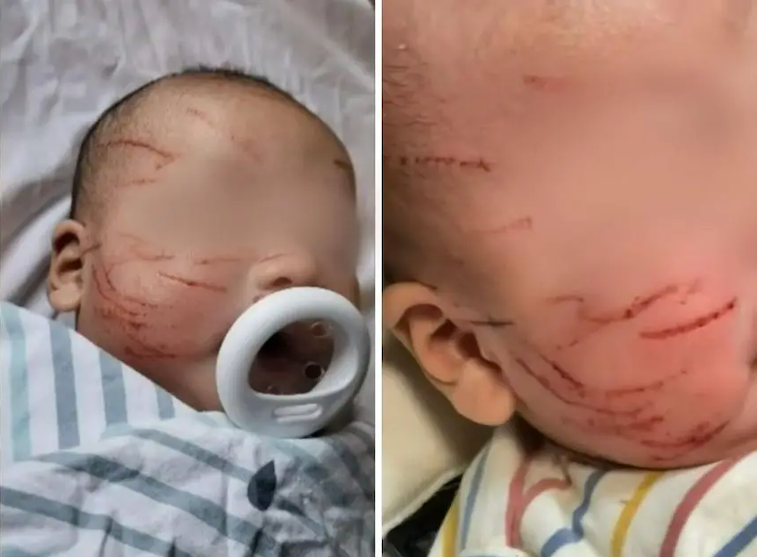
 People5 hours ago
People5 hours agoMother was left horrified after picking up her baby from childcare, ‘but wait until you hear what the doctors asked her’!
-
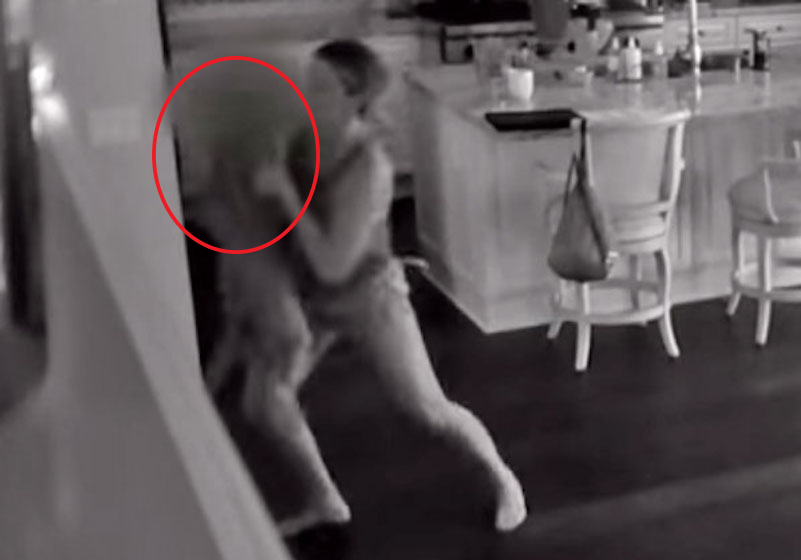
 People5 hours ago
People5 hours agoBabysitter heard noise upstairs, so ‘dad checked the hidden camera and saw a nightmare in his kitchen’!
-
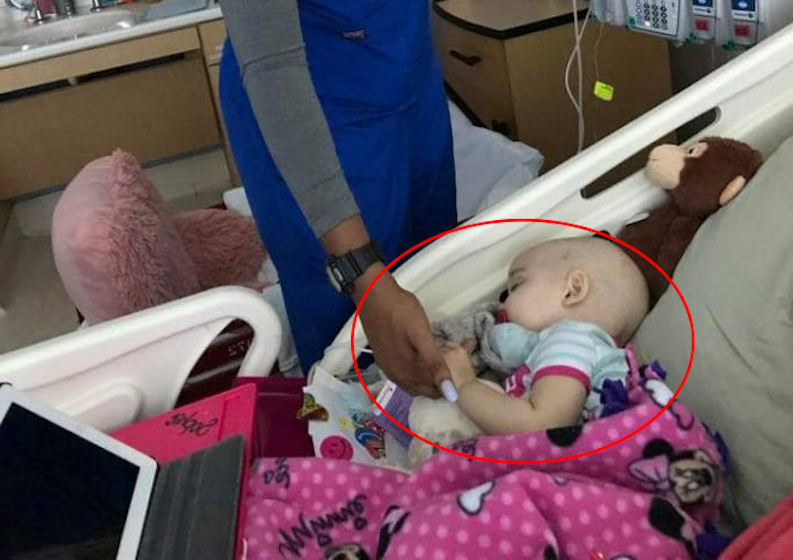
 People6 hours ago
People6 hours agoNurse wanted to be ‘sneaky’ when mom snaps photo letting everyone knew she saw what she did to her daughter!
-
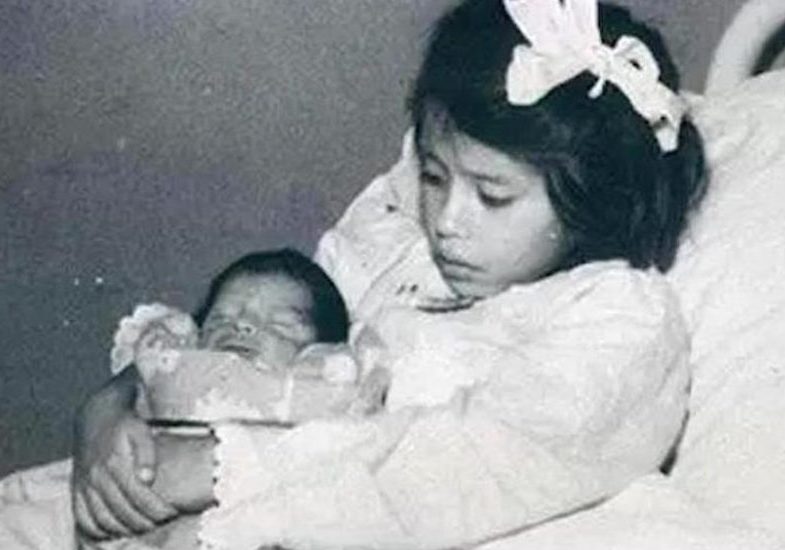
 People1 hour ago
People1 hour agoDoctors were horrified when 5-year-old girl was impregnated; she gave birth 80 years ago and here’s what happened to her baby’!
-

 People20 hours ago
People20 hours ago19-year-old female driver dies in a car accident: 24 hours later, her mother finds the phone in the wreckage and realizes the heartbreak
-
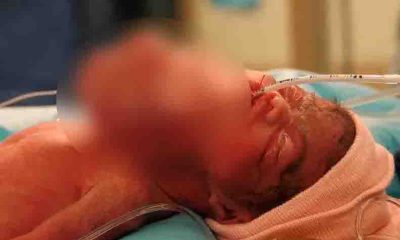
 People22 hours ago
People22 hours agoDoctors saw something coming out of the baby’s neck; ‘when they find out what it was, it left them speechless’!
-

 People33 minutes ago
People33 minutes agoWhen This Trucker Saw A Girl Behind The Curtain Of An RV, He Knew That Something Didn’t Smell Right
-
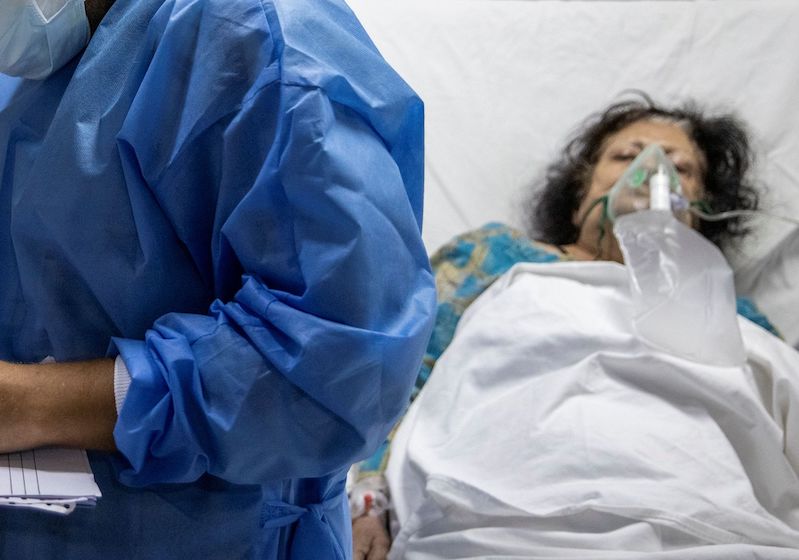
 People2 hours ago
People2 hours agoWoman died after ‘security guard at one of the biggest hospitals posed as doctor and did this to her back’!
